Church Security: Protecting Your Place of Worship with Aldermans Consultants
Churches are meant to be a haven for peace, reflection, and safety. However, events and incidents in recent times, have indicated that they are not immune to security threats. Whether its vandalism, theft, or assault, churches must protect their congregation, staff, and assets. This is where Aldermans Consultants can help.
We provide comprehensive security assessments for churches, identifying vulnerabilities and developing risk mitigation strategies and treatment plans. We analyse all aspects of your church’s security program, including physical security measures, access control systems, and emergency response protocols. This helps us provide tailor-made solutions that best fit your needs.
In addition to security assessments, Aldermans also provide training for church staff and volunteers on managing the security of their church and personal safety. Our experienced security professionals train your staff to identify and respond to security threats, conduct security patrols, and communicate effectively during emergencies and incidents.
Having a security procedure and emergency plan for your church is also critical. We will help your church develop effective policies and procedures for all security threats. This includes developing emergency response plans for critical incidents, medical emergencies, and terrorist threats.
With Aldermans, your church will be better prepared and equipped to handle security threats. Our church security services help ensure the safety and security of your congregation, staff, and property.
We can advise and consult on physical security :
- Church CCTV system
- Church access control measures
- Church perimeter defence systems
- Church security lighting
- Church alarm systems
These security controls need careful consideration to their deployment, effectiveness, managing and maintenance. Aldermans can arrange and hanle all this to ensure you have an integrated security system that is fit for purpose today and into the future.
Our church security consultants provide valuable assistance to churches by offering training sessions to prepare their staff and volunteers to identify and mitigate potential threats. We focus on observation techniques and creating layers of defence to heighten the security of your house of worship.
Investing in a church security advisor is a wise decision that can benefit your congregation and the community significantly. Contact Aldermans Consultants today to learn more about our church security consultancy and how we can help you safeguard your place of worship.
How to reduce risk to your church through enhanced security?
Church security is increasing at houses of worship worldwide due to threats such as active shooter attacks and acts of terrorism. So to diminish these threats, there should be a church safety plan in place and security training for staff and volunteers to help reduce the risk of an attack.
Furthermore, implementing security measures for your churche such as a designated security person with responsibility for on-site security and security procedures are all vital components that should be considered by church leaders. It does not require the same security measures as Buckingham Palace, but having adequate physical protection is essential to make safer houses of worship. Church security experts can help stakeholders formulate the best security plan.
Creating A Church Security Plan
Churches and houses of worship are targeted because of the religious beliefs they practice or just because of the market make up their congregation. Developing a security plan starts with the stakeholders working together to formalise a strategy when it pertains to security at churches. Hiring a specialist church security consultant who can assist in the design process of the security plan would be an excellent investment to accomplish the organisation’s security goals.
How to make a Church Security plan?
With today’s threats against Houses of Worship, Churches must be prepared to ensure their congregant’s safety. Safety and protection is an essential part of church security. Does your House of Worship have a security plan to mitigate threats? An emergency plan to execute a response if a hazard occurs? Do you have trained personnel and volunteers to implement your security plan? These are questions you must ask yourself as a church leader. Our goal is to help you answer these questions to ensure a safe and secure place to worship.
Creating a Church Security Plan
Step 1: Determine the Purpose
The first step of creating a security plan is to determine the purpose of the plan creating a risk assessment for places of worship. This starts with a strategic planning session with stakeholders to discuss the types of threats and what countermeasures can help mitigate the risks understanding the church emergency preparedness. Additionally, knowing what vulnerabilities are currently present at the church to assist in the security planning process.
Step 2: Make Security Policies
Security policies are the Church’s security procedures that ensure safety and security rules are followed by the staff and members to alleviate potential risks. Without a church safety plan, policies and procedures, staff cannot be adequately trained to ensure the security of the Church. Security procedures are step by step directions for staff to follow should a threat or emergency occur.
Step 3: Co-operate With Local Police
It would help if you designed a security plan that includes local law enforcement input. Making contact with first responders will help support the implementation of the security plan should an emergency occur. Having everyone on the page will help better execute the security procedures and emergency plan. Planning and training, together with law enforcement, will support the execution of the security plan.
Step 4: Training the Church Leaders in Matters of Security
Involving the Church leaders in the planning and any training is vital to the security plan’s success. If the leaders don’t know the plan or how to execute it during an emergency, it will lead to breakdown and failures in the security plan. The stakeholders are a critical part of the security planning process and must involve everyone in a top-down approach. Church leaders must have buy-in of the security program and follow all the security protocols by leading by example if they wish to have their staff and members follow the Church’s security rules.
Church Security Assessment
What is A Church Security Assessment?
To understand the vulnerabilities of a church’s security, it first requires a church safety evaluation. It determines weaknesses and probable threats that could create a loss event. A church security assessment will allow the church security consultant to understand better the threats, vulnerabilities, and the impact of any loss events. The security measures for churches can be decided after the physical security assessment.
This process is part of the church security audit is to discover weaknesses in security and to implement the recommended countermeasures for Houses of Worship. It is the first and essential step to conduct a security assessment to help plan your House of Worship’s security program. When the initial security assessment is finished, an annual follow-up security survey is required to monitor and review any modifications that may have occurred and alterations that are needed. Complacency is among the biggest challenges in Houses of Worship. We tend to believe people are good, so no one anticipates anything terrible happening at a Church. That’s not true. Not all individuals are good people, and victims of violent attacks will usually say that they never believed an attack would happen to them.
Implementing Church Security Procedures
Establishing comprehensive security procedures is also an essential part of the security plan. Security procedures are step by step instructions to help better protect the Church. Church security procedures allow the security plan to be implemented and applied to security training for the church. Many Churches are open during various hours for worship, allowing entrance to anyone throughout these open hours. Since Houses of Worship welcome a lot of people, this can create access control challenges; therefore, churches should prepare, develop, and execute stringent security procedures, particularly when an event is being planned or the gathering of a large number of people.
Church Security Training & Conusltancy
An essential part of church safety and security is having all staff and volunteers go through security training. This training can help better prepare staff and volunteers with security basics such as access control, observation skills, and dealing with emergencies.
Why do churches have security?
Regrettably, churches are appealing soft targets for attackers because of their open design, accessible to all individuals, and many have weak physical security. Churches have been forced to create security strategies and ramp up training in the wake of recent incidents taking place in churches and religious environments.
How do you secure a church?
Beginning a safety and security program at your church and house of Worship does not have to be complicated or expensive to secure a church. It is essential to do what you can to enhance security and to secure a church. Many churches do not know where to start or think that a substantial budget is necessary to establish a security strategy. There are many things churches can do today that are low cost and or free. Is your management motivated to make security changes? It’s possible to create lasting, meaningful changes. You can secure a church by assigning functions for an emergency, identify who will call 999, who will speak to authorities, and who will talk to the media. Assign backups for each task.
Church Security Advisors
What does a church security team do?
Some may ask, What does a church security team do? Well, the goal of the security team should be designed to help safeguard assets. Moreover, this can be accomplished by identifying professionals within the membership, such as doctors, medics, existing or former police officers, and members with military or security backgrounds.
How can church security be improved?
There are many ways church safety be improved that include designating a single entryway into the Church. Once your service starts, appoint an usher or group member to lock doors. Any unlocked doors ought to be actively monitored. All other entryways should be inaccessible from the beyond your parish. Ensure that the exit doors remain unlocked from the within. Also, church security can be improved by assigning a volunteer to keep track of any open doors and having volunteers providing surveillance in the parking areas.
Assign security at the front of the churchgoers who can observe the crowd and conduct surveillance throughout the service. Draw attention to the doors, so in an emergency, it’s easy to find all exits for evacuation. Schedule a leadership or staff conference to spur conversation with stakeholders regularly.
Obtain crime reports of the area. This can be done by requestion crime reports for the local police force of crimes that have occurred near the site. Invite police to discuss current issues or concerns you may have to recognise trouble spots.
As experts in security and having acted as security consultants for churches throughout the UK, we are best placed to provide advice, guidance and training.
Our security consultants are all Police or military veterans and have real world understanding of security threats of today and those emerging.
If you are prepared to offset some of your budget and time to create a robust and well considered security plan, it will provide peace of mind for you, your community and your worshippers.

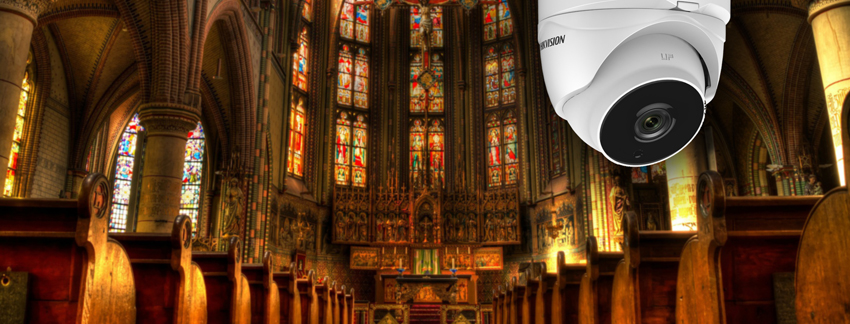

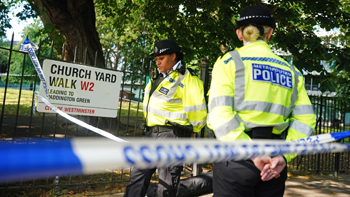
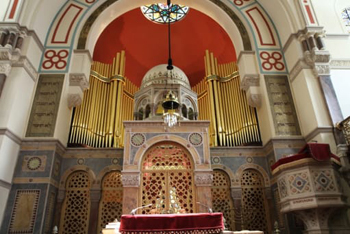



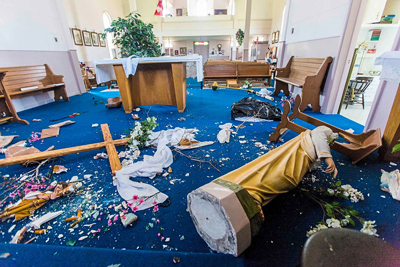 We work with church and faith leaders to help them understand how they can secure and protect their premises, assets and people without creating a fortress type environment. Our observations, assessments and analysis of the underlying security weaknesses are considerd and prioritised to an industry standard matrix. This allows managers and decison makers to allocate appropriate funds and resources to a particular element or function of the place and people to be protected.
We work with church and faith leaders to help them understand how they can secure and protect their premises, assets and people without creating a fortress type environment. Our observations, assessments and analysis of the underlying security weaknesses are considerd and prioritised to an industry standard matrix. This allows managers and decison makers to allocate appropriate funds and resources to a particular element or function of the place and people to be protected. 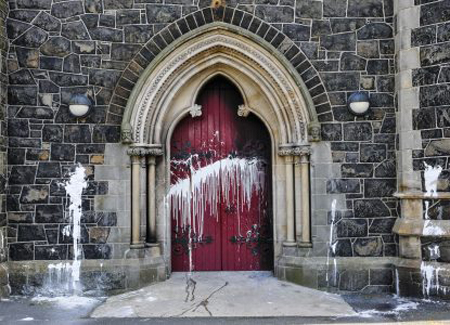 Advising religious organisations to consider and mitigate against these threats usually creates the same response as our corporate clients in that “it wont happen to us”. As we have already alluded to, churches, synagogues and temples are not immune to crime, in fact the weaker the security system appears to a criminal element, the more likely you are to suffer a security b
Advising religious organisations to consider and mitigate against these threats usually creates the same response as our corporate clients in that “it wont happen to us”. As we have already alluded to, churches, synagogues and temples are not immune to crime, in fact the weaker the security system appears to a criminal element, the more likely you are to suffer a security b